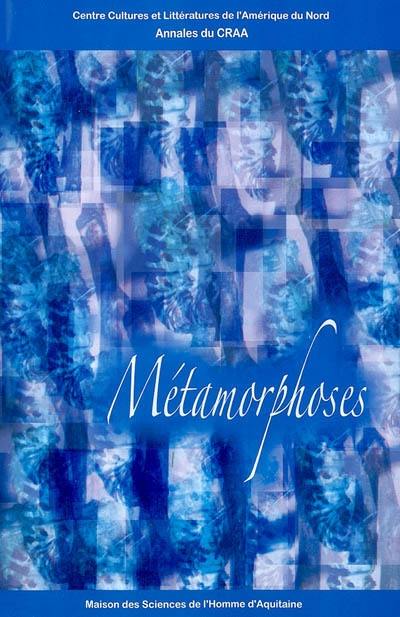
Fiche technique
Format : Broché
Nb de pages : 298 pages
Poids : 494 g
Dimensions : 16cm X 24cm
EAN : 9782858923120
Métamorphoses dans la littérature, les arts et les sociétés d'Amérique du Nord
Quatrième de couverture
"All things are changing: and thou thyself are in continuous mutation, and the whole universe too": cet aphorisme emprunté à Marc-Aurèle par l'un des personnages du roman de Cristina Garcia, The Agüero Sisters, donne la clef des contributions à ce volume sur la métamorphose. Faire de la métamorphose un thème privilégié, voire le moteur même de l'imagination créatrice, c'est déjà, pour les artistes et écrivains convoqués ici, traverser les lignes de partage identitaires, lutter contre une logique de division dont on connaît trop les effets néfastes. Le choix de la fluctuation n'est pas un choix facile, car il n'offre aucune garantie, aucune certitude. Il est de surcroît éminemment problématique pour ceux dont le travail consiste à trouver des formes - récits, images, tableaux - qui, par définition, arrêtent momentanément le flux du monde. Cette tentative paradoxale ne peut qu'impliquer un travail de dé-formation, débordement, re-figuration, dé-figuration ou trans-figuration au sein même de la figuration, au sein d'une esthétique du baroque, du grotesque, voire de l'anti-forme. Surtout, la métamorphose implique toujours une mise en relation avec l'autre, extérieur à soi, ou avec la part cachée de soi, l'autre en soi. Notre réflexion sur la métamorphose nous ramène alors à la question de l'ineffable ou de l'indicible, l'accueil d'une altérité radicale, l'Autre de la langue et du logos - ce qui, tout en lui échappant, en assure la vivace pérennité.
"All things are changing: and thou thyself are in continuous mutation, and the whole universe too": this aphorism, lifted from Marcus Aurelius by one of the characters in Cristina Garcia's novel, The Agüero Sisters, could be the keynote phrase for this collection of essays on metamorphosis. For the artists and writers summoned up in these pages, the choice of metamorphosis as their leading source of inspiration involves a will to work across dividing lines, thus steering clear from a logic of separation and partition whose baleful effects have been sadly recorded by history. Living by flux and fluctuation offers little comfort and provides no certainty, moreover, it does not come easy for those whose work involves shaping and freezing the flow of the world within the momentary frame of representation. This is why many of the writers and artists studied in these pages are involved in aesthetic of the baroque or the grotesque, in strategies of un-shaping, un-framing, re-figuring, de-figuring or even trans-figuring so as to preserve a dynamic space for flux and change at the heart of the figuring process. This open space is also a meeting point where the One comes into contact with otherness, be it the Other outside or the Other inside. Our inquiry into the relations between metamorphosis and representation thus leads us to look at the ever-renewed quest for form as evidence of the presence of a radical Otherness within language.





